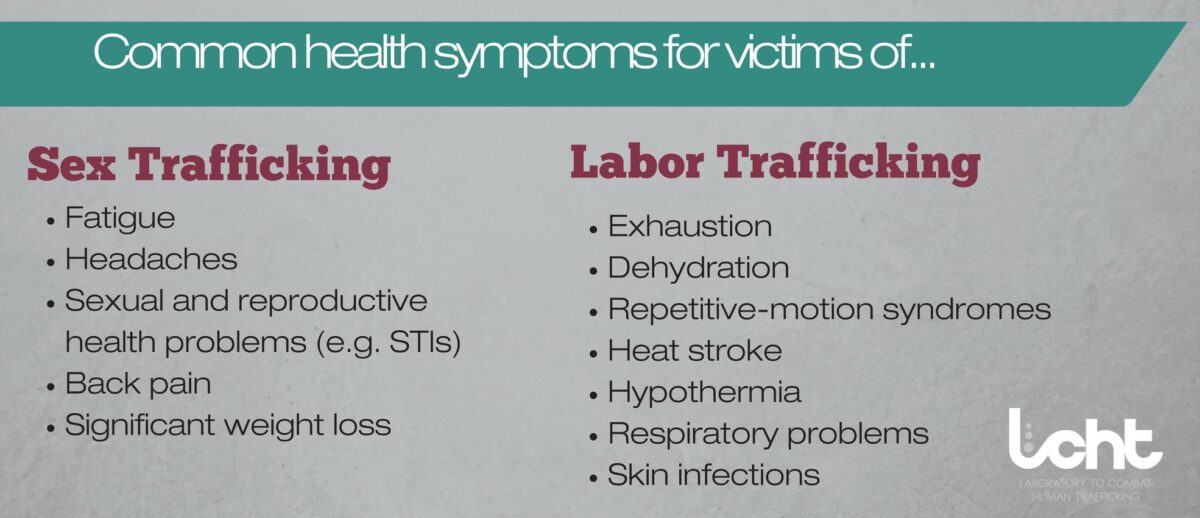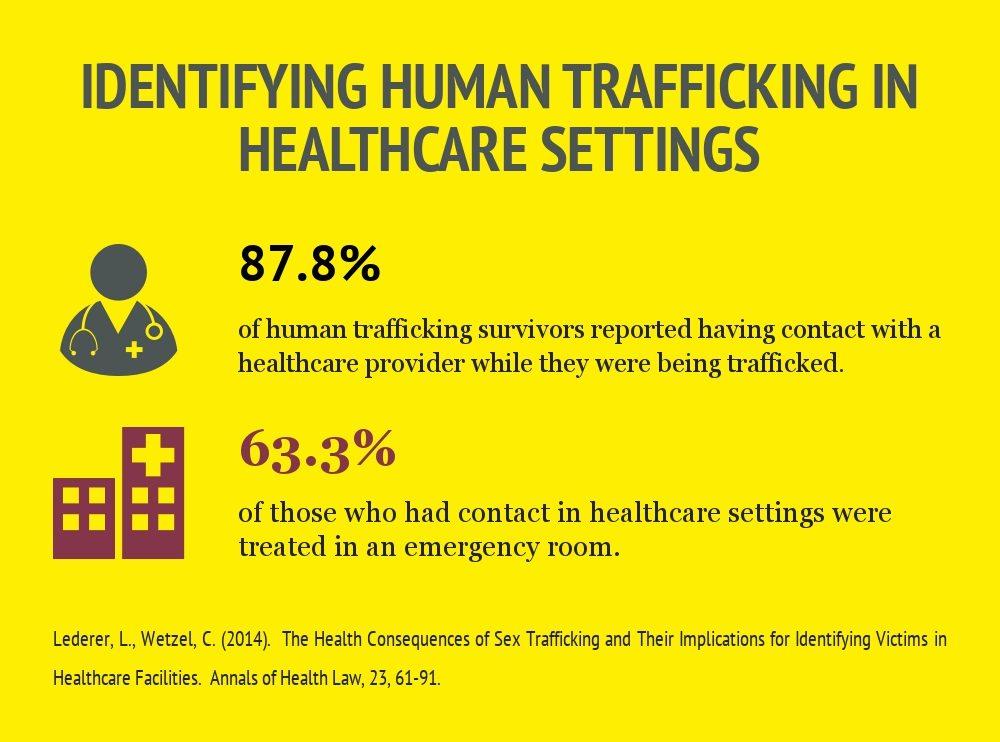“Human Trafficking: A Public Health Issue” is part of The Laboratory to Combat Human Trafficking’s Compreh{END} Campaign blog series. Today’s guest post from Kara Napolitano discusses the health-service needs of victims and survivors of human trafficking, as well as the growing need to equip health professionals with specific anti-trafficking strategies.
Human trafficking is an emerging public health issue that disproportionately impacts individuals from communities of color, and those who are experiencing hunger, homelessness, and domestic violence. However, the health-service needs of victims and survivors of human trafficking have received woefully limited attention, particularly when compared with law-enforcement and immigration responses to trafficking.

Colorado’s political, socioeconomic, and geographic landscape creates an environment where labor and sex trafficking can thrive. The presence of substantial agricultural and tourist economies reliant on low-cost labor; one of the largest populations of homeless youth in the US; and other risk factors provide ample opportunity for labor and sex trafficking to occur throughout the state. When first responders, service providers, or healthcare workers are not properly trained to recognize trafficking, the crime goes unnoticed, victims fall through the cracks, and perpetrators go unchecked. Human traffickers prey upon the vulnerability of individuals in need of employment, and these vulnerabilities are further exacerbated by social inequities resulting from racism, sexism, classism (poverty and homelessness), immigration status, or a history of interpersonal violence.
Health Issues and Human Trafficking
According to the World Health Organization (WHO), the most commonly reported physical health symptoms for sex trafficking victims included fatigue, headaches, sexual and reproductive health problems (e.g. STIs), back pain and significant weight loss. Labor trafficking victims suffer from a different but equally devastating set of health issues. Exposure to significant risk factors can result in exhaustion, dehydration, repetitive-motion syndromes, heat stroke or stress, hypothermia, frostbite, accidental injuries, respiratory problems and skin infections. Poor mental health is a dominant and persistent adverse health effect associated with both labor and sex trafficking. Psychological consequences include depression; post-traumatic stress disorder and other anxiety disorders; thoughts of suicide; and somatic conditions including disabling physical pain or dysfunction.

Women, men and children may encounter psychological, physical and/or sexual abuse; forced or coerced use of drugs or alcohol; social restrictions and emotional manipulation; economic exploitation, inescapable debts; and legal insecurities. Risks often persist even after a person is released from the trafficking situation, and only a small proportion of people reach post-trafficking services or receive any financial or other compensation.
Victim Indentification and Intervention
In 2015, the U.S. Congress passed the Justice for Victims of Trafficking Act federally mandating the training of healthcare professionals to recognize and respond to trafficking victims. Though several pilot programs have been initiated across the country, no such initiatives exist yet in Colorado. Additionally, while reporting incidents of suspected human trafficking is mandatory for healthcare workers, policies and protocols that promote this practice are largely non-existent.
Request an LCHT Training Today
Despite their abusive situations, most victims receive medical treatment at some point during their trafficking. According to one study, 87.8% of survivors had contact with a healthcare provider while they were being trafficked and 63.3% of those were treated in an emergency room setting. Survivors also reported having had significant contact with clinical treatment facilities, most commonly Planned Parenthood clinics, which 29.6% of survivors visited. More than half (57.1%) of respondents had received treatment at some type of clinic (urgent care, women’s health, neighborhood, or Planned Parenthood).

Since pimps and traffickers generally exercise nearly complete control of their victims, these points of contact with healthcare represent rare opportunities for victim identification and intervention. In addition, because of the hearsay exception in the Federal Rules of Evidence for statements made for medical treatment (regardless of whether the declarant testifies), statements by victims to healthcare professionals should usually be admissible in a trafficking prosecution.
Laboratory to Combat Human Trafficking: Training Healthcare Professionals
Effective public-health interventions are predicated on comprehensive understandings of social issues and their root causes. The Laboratory to Combat Human Trafficking (LCHT) develops data-driven solutions to meet the needs of vulnerable individuals to keep them free from the circumstances that can lead to human trafficking. We believe that we must have effective and concerted services as well as informed first responders and service providers to better address the diverse needs of vulnerable populations, including survivors of human trafficking.
Donate to LCHT’s Compreh{END} Campaign!
Our program, focusing on training healthcare providers (as well as other target allies throughout the state) in 2017 will be unique in Colorado and will lead the way for a larger-scale, statewide initiatives aimed at institutionalizing sector-wide human trafficking trainings and awareness programs. Our community-tailored trainings will focus on human trafficking related issues specific to Colorado’s unique community needs and will be both developed and delivered in partnership with those communities. Ultimately, the training of healthcare providers in Colorado will contribute to our understanding of how the health community can directly intervene, and how the health community fits within a larger multi-sector response to human trafficking around the world.

